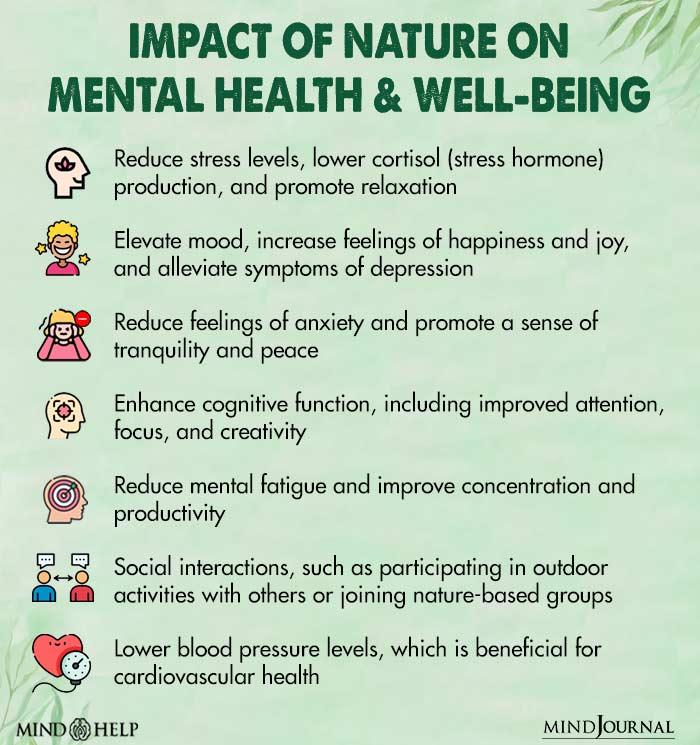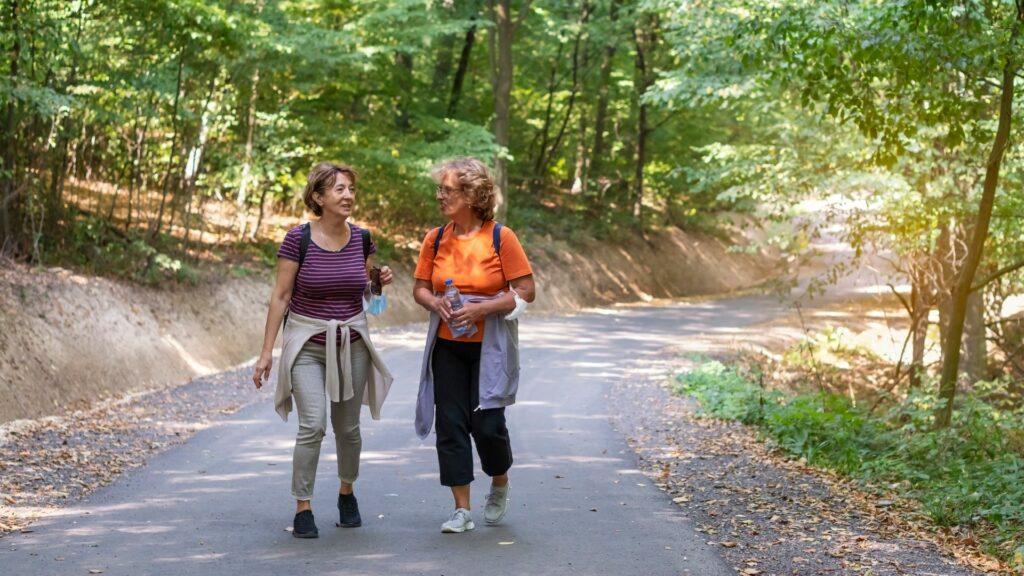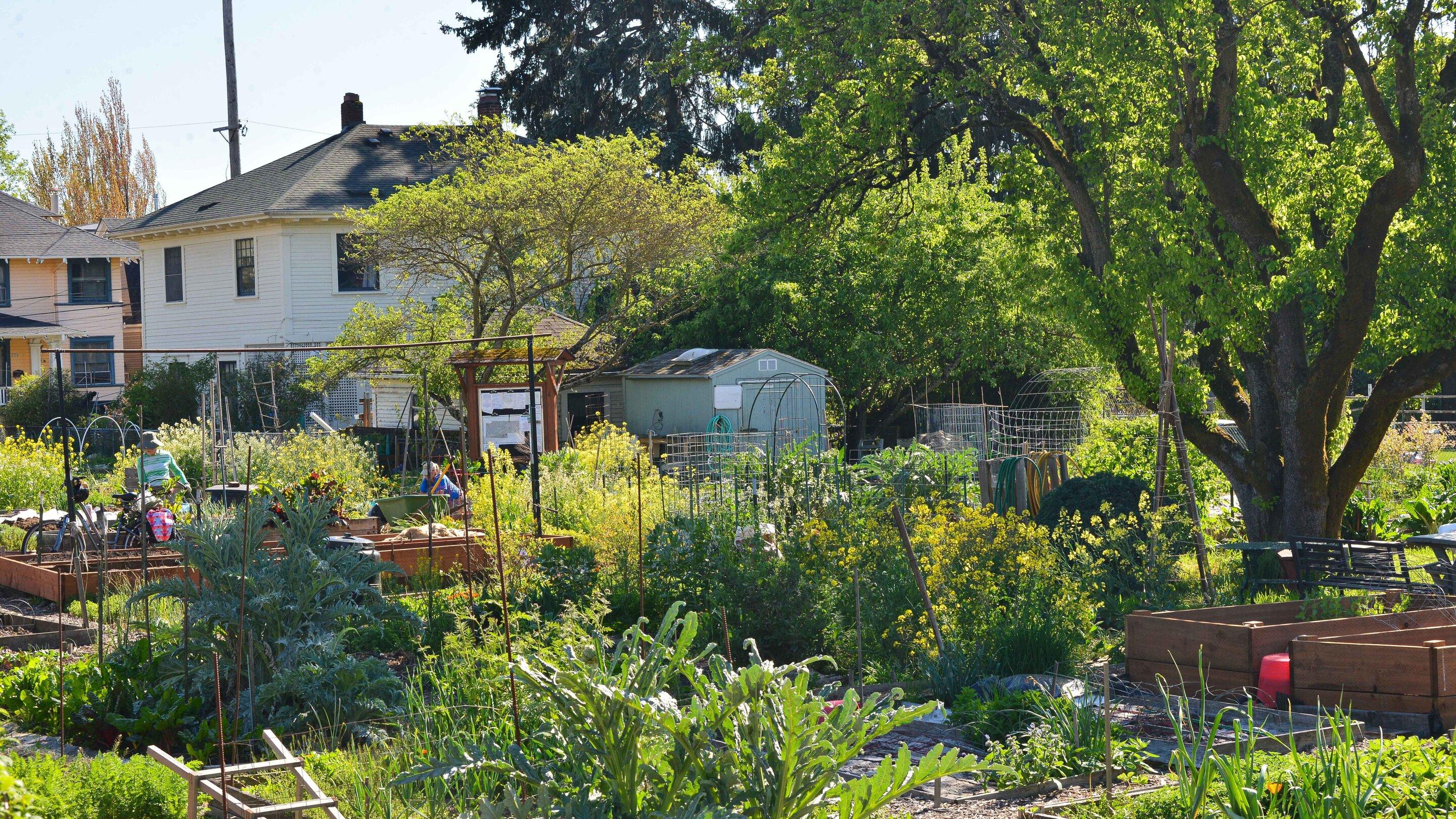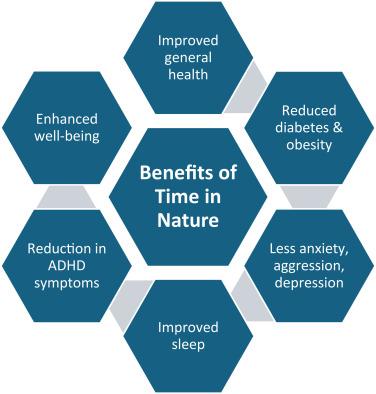In an age dominated by screens and cityscapes, the call of the wild often goes unheard—a gentle whisper amidst the noise of daily life. Yet, stepping outside into the embrace of nature offers more than just a change of scenery; it is a passage to renewed vitality and well-being. From the rustling leaves overhead to the earthy scent beneath our feet, spending time in nature nourishes the mind, body, and soul in ways modern medicine is only beginning to understand. This article delves into the compelling health benefits that unfold when we reconnect with the natural world, revealing why the simple act of being outdoors is a timeless remedy for our physical and mental health.
The Psychological Boost of Outdoor Experiences
Immersing yourself in the great outdoors triggers a cascade of positive psychological effects that are hard to replicate indoors. Nature acts as a natural stress reliever by reducing cortisol levels, which leads to an increased sense of calm and focus. Studies reveal that even brief periods spent outside can elevate mood, enhance creativity, and improve cognitive function. This mental reset occurs because natural environments engage our attention in a soft, effortless way, often referred to as “soft fascination,” allowing the brain to recover from mental fatigue and sharpen concentration.
Key psychological benefits of outdoor experiences include:
- Reduced anxiety and depression symptoms
- Increased feelings of happiness and well-being
- Enhanced memory and problem-solving skills
- Improved sleep quality through natural light exposure
- Boosted self-esteem and resilience
| Activity | Psychological Impact | Suggested Duration |
|---|---|---|
| Forest walking | calming, reduces rumination | 30-60 mins |
| Bird watching | Increases mindfulness, focus | 15-45 mins |
| Beach meditation | Promotes relaxation, stress relief | 20-30 mins |
For deeper insights into how nature positively affects mental health, the National Institute of Mental Health provides extensive research highlighting these connections. Additionally, the American Psychological Association offers practical advice on incorporating outdoor activities into your wellness routine for maximum psychological benefit.

How Nature Walks Enhance Physical wellbeing
Immersing yourself in a woodland trail or a quiet park pathway boosts your cardiovascular health by naturally elevating your heart rate without the stress of a gym surroundings.Walking on varied terrains also improves muscle tone, enhances balance, and increases joint versatility, making it a comprehensive form of exercise that benefits the entire body.Research from the Centers for Disease Control and Prevention supports that regular moderate exercise, such as nature walks, contributes significantly to reducing risks of chronic illnesses like hypertension and type 2 diabetes.
In addition to physical improvements, nature walks encourage mindful movement and breathing, promoting oxygen flow and reducing inflammation. Activities in natural environments have been shown to lower cortisol levels and elevate mood-enhancing hormones, translating into improved recovery times and reduced fatigue. The following table highlights key physical benefits of walking in nature compared to indoor treadmill walking:
| Benefit | Nature walk | Indoor walking |
|---|---|---|
| Muscle engagement | Varied terrain activates more muscles | Consistent flat surface,fewer muscles used |
| Air quality | Fresh,oxygen-rich air | Recycled,often drier air |
| Stress reduction | Natural sounds and greenery lower stress | Less sensory stimulation |
| Caloric burn | Higher due to uneven surfaces | Lower |
- Exposure to sunlight enhances Vitamin D synthesis,crucial for bone health.
- Improved sleep quality thanks to natural circadian rhythm cues.
- Better posture as uneven paths encourage core engagement.

Immune System Strengthening Through Regular Green Space Visits
Spending regular time in green spaces has been shown to enhance the body’s immune response,creating a natural shield against various illnesses. The rich biodiversity found in parks, forests, and gardens exposes visitors to a wide range of harmless microbes essential for immune system education and resilience. Such microbial diversity can help balance immune function, reducing excessive inflammation and lowering the risk of autoimmune disorders. Additionally, the presence of phytoncides—organic compounds released by trees—has been linked to increased activity of natural killer (NK) cells, crucial for targeting virus-infected cells and tumors.
- Exposure to beneficial microbes boosts immune regulation
- Phytoncides enhance natural killer cell performance
- Reduced stress hormones like cortisol improve immunity
- Low pollution environments prevent immune suppression
| Factor | Immune Benefit |
|---|---|
| Diverse Microbes | Immune education & Tolerance |
| phytoncides | Boosted NK cell Activity |
| Reduced Stress | Lowered Cortisol Levels |
Moreover, green space visits are strongly associated with decreased stress and improved mental well-being, both crucial for optimal immune function. Chronic stress leads to elevated cortisol levels, which suppress the immune response and increase vulnerability to infections. Being in nature supports relaxation and enhances parasympathetic nervous system activity, contributing to a healthier immune landscape. For scientific insights into how nature impacts immune health, see research updates at NCBI and the latest wellness studies from WHO. Harnessing the immune-boosting potential of green spaces can be a simple yet powerful addition to your wellness routine.

Practical Tips for Incorporating Nature Time into Daily Life
Integrating moments in nature into your routine doesn’t have to be intricate. Simple changes like taking a brisk walk in a nearby park during lunch breaks or choosing to sit outside while reading can make a huge difference. Start small by turning off digital distractions and truly tuning into your surroundings—feel the breeze, listen to birdsong, and notice the vibrant colors of plants around you. You might also consider setting reminders to pause and breathe deeply outside, which can boost mindfulness and reduce stress.
For those who prefer structure, creating a weekly nature schedule can help ensure consistent outdoor time, whether it’s a weekend hike or a daily garden pause. Hear are a few actionable ideas to get started:
- Commute by walking or cycling through green spaces when possible
- Join local community gardening initiatives to connect with others and greenery
- Practice outdoor yoga or meditation in peaceful natural settings
- Explore national parks or designated nature reserves during days off
| Activity | Time Required | Benefit |
|---|---|---|
| Garden watering | 10 minutes | Reduces anxiety |
| Park walk | 20 minutes | Improves mood |
| Outdoor reading | 30 minutes | Enhances focus |
For further inspiration and evidence-based guidance on natural wellness, explore resources like the The Way Forward
As we step back from the quiet embrace of the natural world, it becomes clear that the benefits of spending time in nature extend far beyond the fresh air and scenic views. They weave into our mental clarity, emotional balance, and physical vitality—reminding us that we are not separate from the earth, but an intrinsic part of its rhythm.So whether it’s a brief stroll through a city park or a weekend escape into the wilderness, these moments outdoors offer a simple yet profound prescription for well-being. In nature’s presence, we find not just beauty, but a subtle healing that invites us to reconnect—with ourselves, with each other, and with the world around us.





